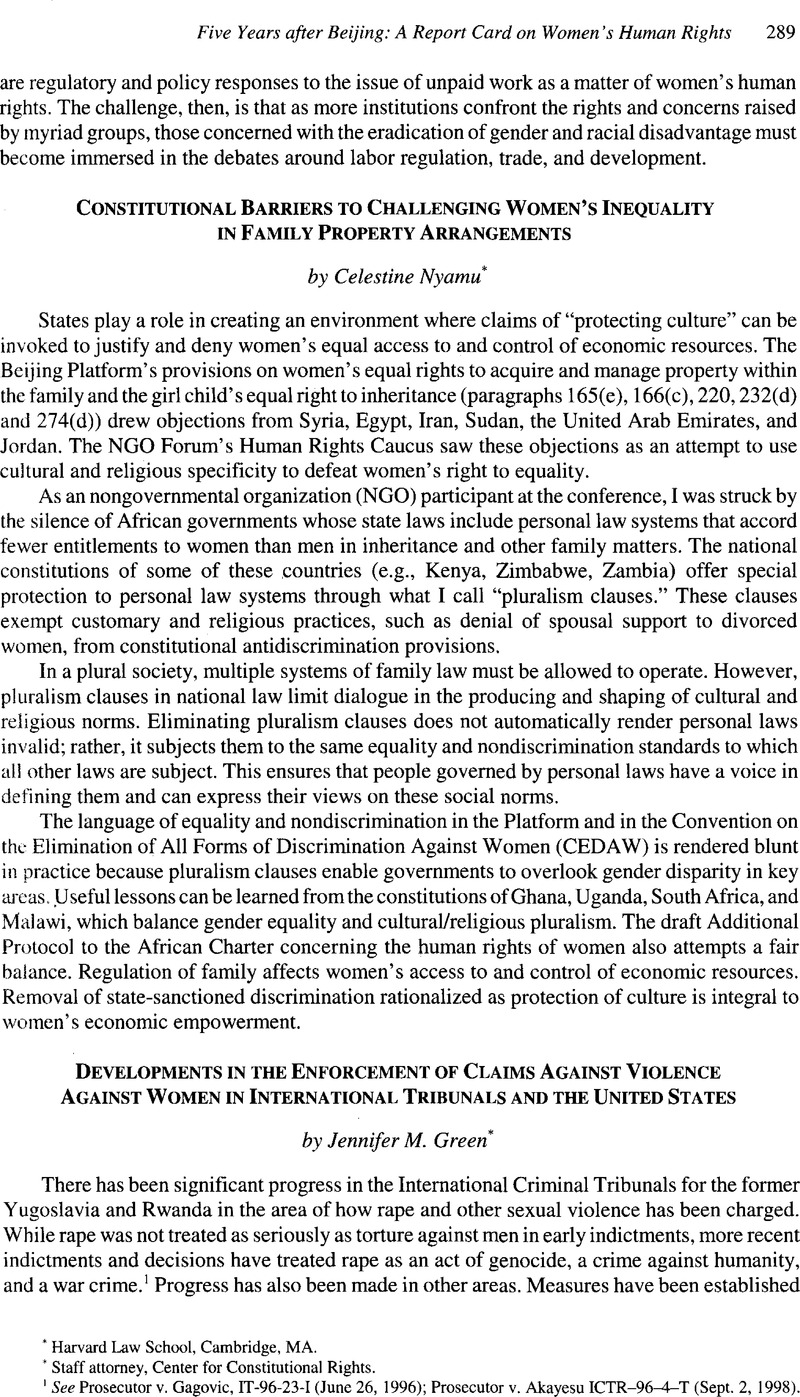No CrossRef data available.
Article contents
Developments in the Enforcement of Claims Against Violence Against Women in International Tribunals and the United States
Published online by Cambridge University Press: 28 February 2017
Abstract

- Type
- Five Years After Beijing: A Report Card on Women’s Human Rights
- Information
- Copyright
- Copyright © American Society of International Law 2000
References
2 For further discussion of advocacy, see, e.g., Green, Copelon et. al, Affecting the Rules, Hastings Women’s L. J
3 For a fuller discussion, see The International Criminal Court: The Beijing Platform in Action (2000), attainable from <www.iccwomen.org>.
4 See, e.g., Doe v. Karadzic, 70 F.3d 232 (2d Cir. 1995) (court recognized rape as genocide, crime against humanity and war crime); Doe v. Haddam, 993 F.Supp. 3 (D.D.C. 1998) (court stated that claims including rape and sexual slavery are violations of international law as it exists today); Doe v. Unocal, CV 96-6959-RAP (filed Oct. 3, 1996) (plaintiffs claimed systematic use of rape as part of a campaign of intimidation and terror against the civilian population in Burma); Doe v. Gap, CV 99-329 (filed CD. Cal. Jan. 13, 1999) (plaintiffs charged violation of international women’s rights for women threatened with termination of employment should they become pregnant).


